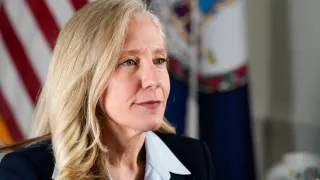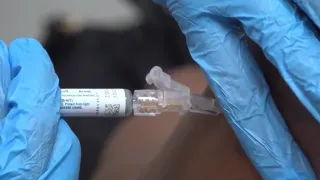January 13, 2015
Amazon Signs Woody Allen to Create His First TV Series
Jason St. Amand READ TIME: 1 MIN.
Amazon Studios is delivering Woody Allen as creator of his first-ever TV series.
The veteran filmmaker will write and direct all of the episodes of the half-hour series. A full season has been ordered for Amazon's Prime Instant Video, the company announced Tuesday. The series is expected to premiere in 2016.
No details on casting were disclosed, nor was the series title announced.
Amazon Studios Vice President Roy Price said Allen "has been at the creative forefront of American cinema" for decades.
Allen, 79, declared in a statement that he has no ideas "and I'm not sure where to begin." He added, "My guess is that Roy Price will regret this."
Amazon Studios gained heightened stature Sunday when its new comedy series "Transparent" won two Golden Globes.






